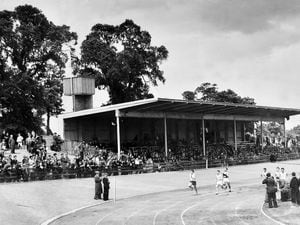Tales of shocking crimes and botched justice in our region from a time when life was cheap
In the savage heat of one of the Black Country’s many nail-making shops, unforgiving sweatshop where bullets of fire spat and metal ran like lava, young Alice Roleson met a truly terrible end.

A glowing, red-hot bar, hurled by an angry worker, struck poor Alice in the chest. Her screams, according to reports, were so terrible in their intensity they echoed across Rowley Regis. Thankfully, her suffering was short: Alice died within seconds.
Her killer, 18-year-old James Smith, did not mean to harm the girl, that is an undeniable truth. He had sunk too many pints in a nearby public house before beginning the slog of his September 20, 1802, shift and the alcohol had stoked a brooding anger.
Argumentative and unsteady, Smith become embroiled in a violent row with a colleague and, enraged, dragged the bar from the furnace jaws and flung it across the shop.
The fit of pique had terrible consequences.
Smith did not mean to harm Alice, yet his punishment will today – an age when safe work practices are paramount – raise eyebrows.
Found guilty of manslaughter at Stafford Crown Court, Smith was fined one shilling and sent on his way. Today, that is still worth only £5.
A previous inquest into the death found Smith had committed “wilful murder”, but the jury at his trial correctly decided the teenager had acted without the intent to cause mortal injury.
He had, however, shown unbelievable recklessness that should have merited a lengthy prison sentence.
Alice’s life was evidently deemed to be worth very little. One shilling, just one shilling.
In his close-knit community, Smith’s punishment ran much deeper. He was hated.
Immediately after taking Alice’s life, he was set upon by a mob who stormed the shop and rained kicks and blows on their target. They were in the process of lynching Smith when peace-keepers stepped in and rescued the bruised and bloody suspect.
After the trial, Smith faced violence whenever he stepped outside and was eventually forced to leave the region, a pariah in his parish. He simply disappeared, with no records of his new location, what he achieved or when he died.
In Smith’s defence, he was young, immature, drunk at the time and possibly haunted by guilt for the rest of his life. But what a terrible blow that one shilling fine must have been to Alice’s family.
The disturbing death of Alice Roleson is among a long list of serious crimes that, long before forensic evidence, resulted in outcomes that were, at best, baffling, at worse rank injustices.
Back then, what are known today as detectives relied on due diligence and sound judgement. Yet the succession of individuals who walked from the gallows’ shadow despite facing a mound of unequivocal prosecution evidence shows that judgement was sometimes tissue soft, not sound.
With apologies to the descendants of Jabez Pugh, a boozy, Bloxwich soldier who burned with rage, I believe he savagely murdered pensioner Sarah Anne Walker.





